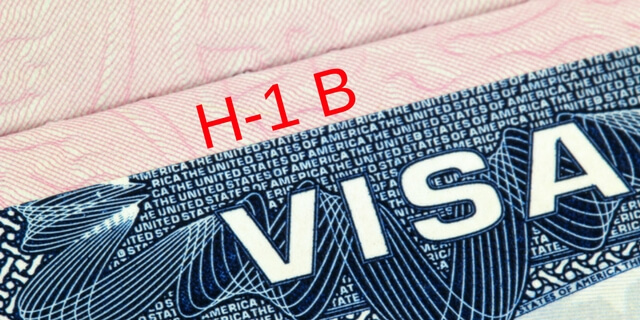This past Spring the Trump administration introduced new regulations entitled “Strengthening the H-1B Nonimmigrant Visa Classification Program.” This is what that means for you:
The Department of Homeland Security (DHS) will propose to revise the definition of specialty occupation to increase focus on obtaining the best and the brightest foreign nationals via the H-1B program and revise the definition of employment and employer-employee relationship to better protect U.S. workers and wages. In addition, DHS will propose additional requirements designed to ensure employers pay appropriate wages to H-1B visa holders.
The details of the new rule deliver a more unwelcoming message to the H-1B extension applicants. The impact of this rule, to our understanding, is this:
1. The rule makes it easier for U.S. officials to deny H-1B visa extension applications.
2. The rule causes uncertainty and risk to the companies who hire H-1B visa holders. This new rule certainly can cause more hiring and training cost for sponsoring companies.
3. When an H-1B visa extension is denied, the applicant will be issued a Notice to Appear (also known as NTA) to appear in court for deportation proceeding.
4. An H-1B holder who is denied for an extension has the option of replacing the court hearing in lieu of voluntary departure.
5. If the 3 and 4 regulations are violated, the former H-1B employee will face a 5-year ban on re-entering the U.S.
6. An unlawful presence in the United States (beginning the day that visa extension is denied) may result in a 10-year re-entry ban.
On September 11, the United States Citizenship and Immigration Services (USCIS) added another predicament to those companies who had filed H-1B petitions for their foreign workers. Here is the announcement from USCIS:
USCIS is extending the previously announced temporary suspension of premium processing for cap-subject H-1B petitions and, beginning Sept. 11, 2018, will be expanding this temporary suspension to include certain additional H-1B petitions. We expect these suspensions will last until Feb. 19, 2019, and will notify the public via uscis.gov before resuming premium processing for these petitions.
As the Trump administration continues implementing its “America First” policy, it also continues to make foreigners feel unwelcome in America. In the meantime, foreign students enrollment continues to decline in the U.S. This, in turn, allows U.S. competitors to lure students who inevitably enter their workforce with skill sets sorely needed here. We are losing the next Sundar Pichai, the CEO of Google, and Elon Musk, the founder of SpaceX, and the co-founder of PayPal and Tesla, who have changed the ways we think and live.
The brightest and best foreign students do not have to come to the U.S. because they have many other alternatives. Aside from Canada, U.K., Australia, New Zealand, international students are flocking to new destinations like China and Germany. Furthermore, Russia, Turkey, and many others have revised their labor regulations to welcome foreign students. While the U.S. is making itself less attractive to foreign students, other countries continue to gain ground in the world education market.
Higher education is America’s greatest asset. Failure to understand and enact policies that attract foreign talent to our shores undermines our ability to compete globally.


特朗普像个猪头,还谎话连篇,美国这样低能总统,会对下一代未来,造成重大影响。他将美国人的夜郎自大,当成是伟大,真可悲!
YunTeng,
谢谢您留言。我们尊重你的发言权,但我们希望尽量不要用轻蔑字眼于我们留言内容。